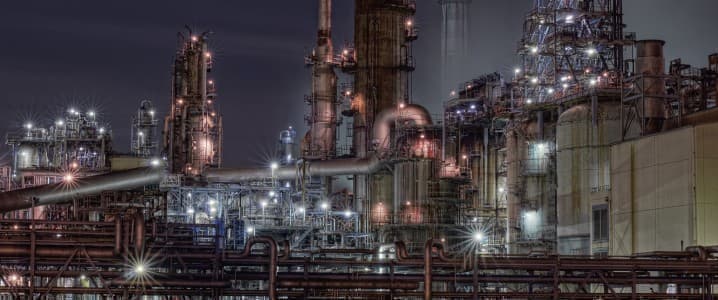The Covid-19 pandemic and the oil crisis have taken a heavy toll on demand for transport fuels such as gasoline and jet fuel leading to severe margin compression for refineries. The situation is not being helped by a cross-section of experts warning that we might already be past peak demand for oil and that ‘Lower Forever’ might be the new norm for oil prices.
Faced with this existential crisis, global refiners are being forced to reinvent themselves in a bid to survive. Some, such as Texas-based Phillips 66 (NYSE:PSX), have started repurposing their refineries to produce renewable fuels as they look to capitalize on a boom in renewable fuels by the aviation industry.
On the opposite end of the spectrum, wily oil and gas executives are betting big on yet another environmental vice: Plastics.
Bloomberg has reported that Asian oil producers have begun to double down on massive integrated refineries capable of converting more than a million barrels of oil per day into petrochemicals, the key building blocks of plastics.
Not surprisingly, China is leading the way again.
Rongsheng Petrochemical Co.’s plant, located on Zhoushan island near Ningbo, will be capable of converting 800,000 barrels of oil per day into petrochemicals when it comes online in 2021 thus making it the world’s biggest oil-to-chemicals complex. There are plans to expand the plant later to handle a staggering 1.2 million barrels, a feat that India’s Oil Corp. plans to match with the Ratnagiri Refinery and Petrochemicals (RRPCL) complex when it comes online in 2023. Interestingly, Saudi Aramco is reportedly planning to take, or has already taken, a stake in both projects.
China plans to add more integrated refineries at Shenghong, Yantai, and Caofeidian with a capacity of 1.6 million barrels a day by 2025. Meanwhile, India’s Reliance Industries Ltd. has been investing aggressively in petrochemicals, having doubled its capacity in the space of just a few years. A flurry of integrated mega-refiners from Asia are expected to come online over the next four years. Related: U.S. Oil Exports To China Soar 139% In July
Asia’s plastics boom is mainly being driven by regional demand that’s growing even faster than the economy. Unfortunately, the rise of these mammoth integrated refineries could put a lot of smaller refineries, especially in the developed markets, out of business.
Intense competition
Whereas the oil demand outlook remains dire, the petrochemicals and plastics situation appears much brighter.
The International Energy Agency (IEA) has predicted that over the next decade, petrochemicals will account for more than a third of global oil demand growth and nearly half through 2050.
But not everybody will be partaking of the petrochemicals spoils with the lion’s share expected to go to Asian refiners.
According to industry consultant Wood Mackenzie, more than half of the global refining capacity that’s expected to come onstream over the next seven years will be added in Asia. Of these Asian facilities, 70%-80% will be the integrated types focussed on the production of plastics. Related: Bullish EIA Inventory Report Pushes Oil Prices Higher
According to WoodMac’s research director for Asia Pacific refining, Sushant Gupta, the economics of standalone refineries or even standalone petrochemical plants no longer makes sense.
Unfortunately, it is this very trend that is likely to bankrupt a lot of smaller independent refiners in developed markets. Goldman Sachs’ analyst Nikhil Bhandari has said that intensifying competition by these giant refineries is likely to lead to further margin contraction and eventual closure for smaller refineries in developed markets over the next couple of years.
Shaky industry
Whereas Asia’s plastic boom is expected to benefit refiners in the region, the future of the plastics industry in the United States remains shaky at best.
On one hand, President Trump’s recent rollback of tough Obama-era EPA laws as well as a renewed commitment to hygiene during the pandemic has triggered a rebound in sales of previously out-of-favor plastics like polystyrene. Further, the shale boom and low oil prices have led to an overabundance of cheap feedstocks such as oil and natural gas used in the manufacture of plastics.
ADVERTISEMENT
However, stiff opposition by environmentalists remains a big threat over the industry: Gina McCarthy and Judith Enck, founder of advocacy group Beyond Plastics and former regional administrator for the EPA, have lambasted the manufacturing sector for openly taking advantage of the ongoing health crisis to obtain the sympathy of the powers that be.
Further low energy prices and deep capex cuts have led to prolonged delays for petrochemicals projects in the United States. Case in point is Thailand-based PTT Global Chemical, which announced in May that it would indefinitely delay its plan to build an ethane cracker plant in Ohio, citing uncertainty amid the health crisis while Shell said in March that it was shelving its Pennsylvania project.
Meanwhile, China’s plans to invest $84 billion in plastic and energy investment in West Virginia have yet to materialize in the three years since the promise was made.
Lastly, Democratic presidential candidate Joe Biden is unlikely to be as indulgent with the plastics industry as Trump has been: Biden has already declared that plastics ought to be phased out, meaning aggressive expansion plans such as those by Asian refiners might never see the light of day if he becomes president.
By Alex Kimani for Oilprice.com
More Top Reads From Oilprice.com:
- Investment Funds Could Miss Out On Multi-Year Bull Run In Oil & Gas Stocks
- Saudi Energy Ministry To Help Build $500 Billion Smart City
- Oil Rallies As Twin Storms Force Shut-Ins In Gulf Of Mexico


















